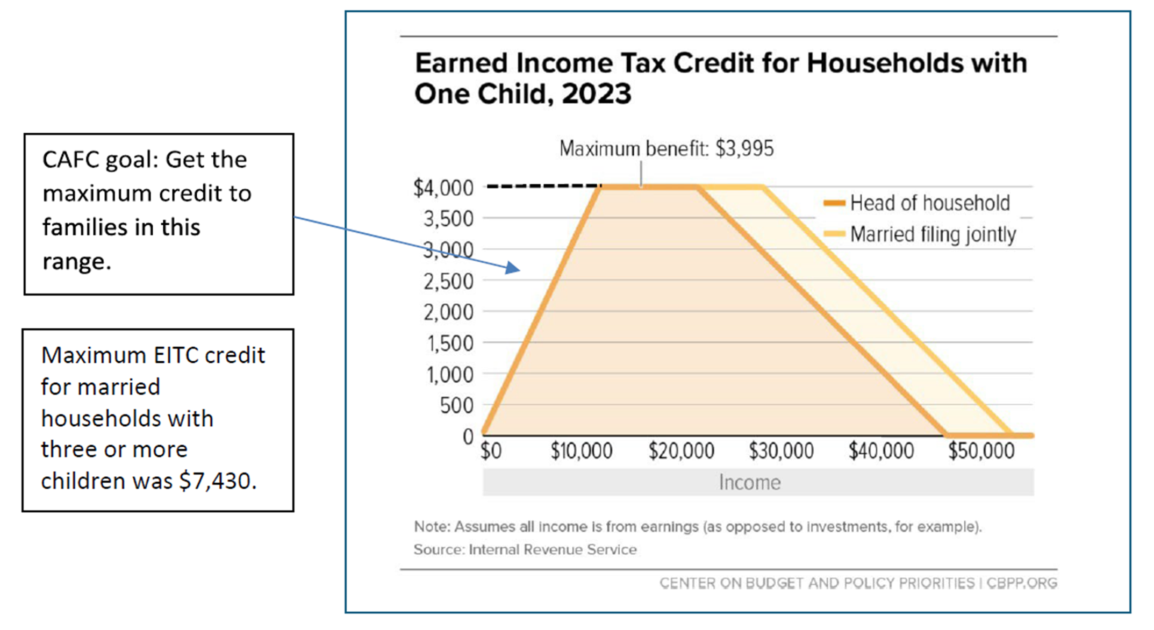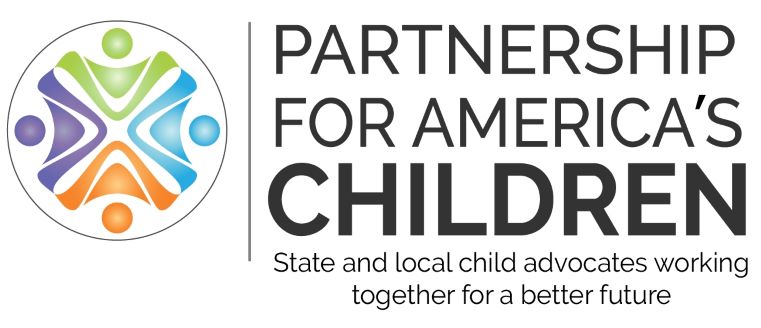Children’s Advocates for Change (CAFC) 2025 Policy Agenda
CAFC’s 2025 Policy Agenda is built around improving economic conditions and healthcare access for low-income Illinois children and their families. While we have listed the items below, our organization is keeping an eye on potentially major federal policy changes regarding Medicaid, SNAP and other human service programs that could impact our advocacy work for the year.
Improving the Illinois Child Tax Credit
In 2024, the Illinois General Assembly enacted a state Child Tax Credit. The refundable credit will be available to taxpayers eligible for the state Earned Income Tax Credit (EITC), which is 20% of the federal EITC, that have at least one child younger than age 12 in the household. For tax year 2024 (with taxes payable in 2025), the new state Child Tax Credit is worth 20% of a taxpayer’s state EITC. It then increases to 40% of a taxpayer’s state EITC for each of the following years.
However, due to the CTC’s structure (with the CTC as a percentage of the state EITC), the maximum available credit is not available to very low-income families. The federal EITC is constructed in a pyramid fashion that gets to the maximum credit level only after reaching an income level of approximately $11,750 for a single tax filer with one child and $16,500 for married filing jointly taxpayers with three or more children.
During 2025, Children’s Advocates for Change will seek to make low-income families eligible for the maximum credit.

Rent Relief
U.S. Census Data clearly shows that a far greater percentage of lower-income households pay more than 30% of their income on rent versus higher-income households. A far higher percentage of Illinois Blacks rent versus own housing units Yet, the state’s property tax credit benefits homeowners. While the state does have rental assistance programs in place, these programs largely address those facing eviction or that are homeless.
During the 2023-2024 legislative session, CAFC advocated for an income tax credit for renters worth 5% of documented rental costs for a dwelling used by the taxpayer as a principal place of residence. To qualify, a taxpayer must have lived in Illinois for at least half the year, have a federal adjusted gross income at or below 200% of the federal poverty level, and rental payments must exceed 30% of the taxpayer’s federal adjusted gross income.
While the legislature did not pass this measure, CAFC will continue to work towards this and other rent relief measures.
Youth Mental Health Resources
Data from the National Survey of Children’s Health (NSCH) covering 2021 and 2022 shows nearly 22% of respondents indicated their child had one or more reported mental, emotional, development or behavioral problems. (The survey covered children ages 3-17.)
Such conditions can frequently be brought about by adverse childhood experiences (ACEs), which are potentially traumatic events or circumstances for the child that can range from violence to poverty. If the impacts are left untreated, it can affect that child into adulthood. NSCH data also shows that 38.3% of Illinois children have experience once or more ACEs.
CAFC supports increasing state funding for school mental health professionals (whether social workers or psychologists) that can counsel and assist students in meeting mental health challenges.






